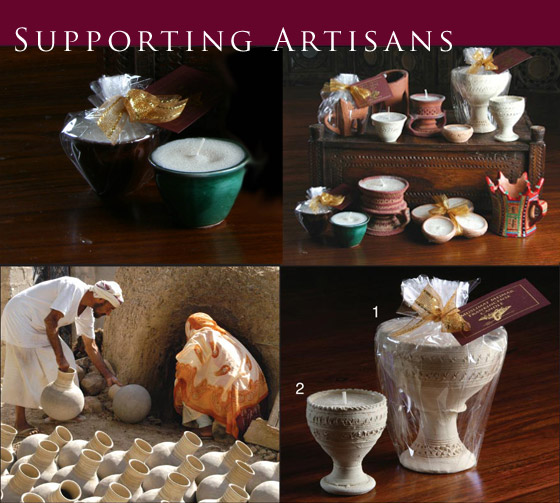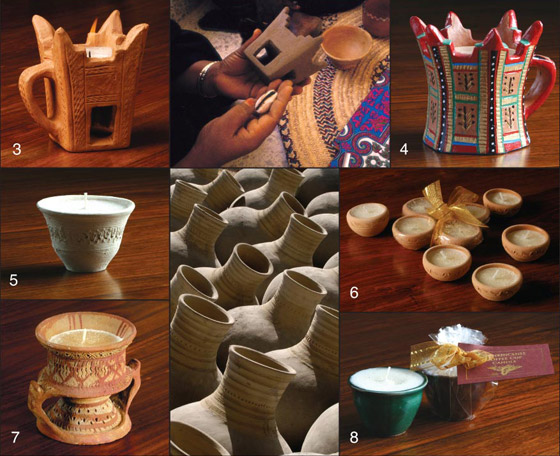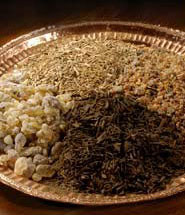

From carpet making, leatherwork, jewellery to pottery, Oman has a rich and ancient craft making tradition. The Nejd supports local artisans and their communities by connecting their products to the global marketplace, thereby ensuring that traditional industries continue to thrive and are passed on to the next generation.
The Nejd practices fair trade policies and supports four distinct and independent artisan groups across Oman.
The Nejd offers a unique range of stunning frankincense container candles made from mejmar, traditional incense burners.
1, 2 & 5: These pots are made by men in the town of Muslimat and are characterized by their white colour and coarse, rustic exterior. Taking up to four weeks to produce from gathering and producing the clay, sculpting the mejmar, drying and firing, this poetry exemplifies the artistry and functionality that define Omani crafts.
3 & 4: These mejmar are made by women in the southern Dhofar region of Oman. Dhofai terracotta pottery is easily identified by its rich red colour, achieved through open-pit firing, along with its iconic crenelated edging.
6 & 8: Potters in the ancient town of Bahla trace their traditions back over 3,000 years. These candles are based on coffee cups and other traditional designs.
7: These mejmar are made by men in a remote village in the northern mountains of Musandam, accessible only by boat or helicopter. Now very rare, this form of pottery has remained virtually unchanged for nearly 5,000 years.
| 1. TA-1100 15cm H x 10cm W |
2. TA-1200 11cm H x 7cm W |
3. TA-1000 8cm H x 6cm W |
||
| 4. TA-1550 10cm H x 10cm W |
5. TA-1450 6cm H x 7cm W |
6. AC-1750 4 pack, 5cm W |
||
| 7. TA-1300 11cm H x 6cm W |
8. TA-1400 6cm H x 7cm W |
Large orders for artisanal items may require a long lead time. As with all handmade items, not all pieces will be absolutely identical.
The pottery can be reused as an incense burner by placing frankincense resin directly on burning coals.
The Nejd practices a strict fair trade policy to ensure that artisans are paid a fair price for their goods.
Fair prices help make traditional craft industries viable in the 21st Century and ensure that heritage and culture are passed on to future generations.

